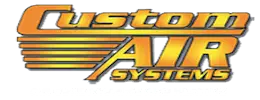As temperatures drop in Manvel, TX, you’re likely ready to use your heating system again. So, you head over to your gas furnace to switch it on and make your home all warm and cozy.
Unfortunately, as soon as you’re standing near it, your nose curls up because your furnace smells like rotten eggs.
In that case, close the gas valve immediately and ensure your furnace has no power. Then, please follow the rest of the steps in this guide without delay.
Open the Windows and Exit Your Home
As soon as you’ve closed the gas valve and turned off your furnace, open as many windows as possible. This is vital as the stench of rotten eggs from your heating system is likely due to a natural gas leak.
Natural gas, on its own, is colorless and odorless, but it’s also flammable and explosive. These characteristics contributed to the tragic 1937 school explosion in New London, Texas.
In the hopes of preventing another tragedy, suppliers began to add mercaptan to natural gas. This flammable chemical gives the gas its distinctive sulfur-like or rotten egg smell.
That said, natural gas can explode if it builds up in an enclosed space. This can happen if an ignition source, such as a static electricity spark, is nearby.
As an asphyxiant, natural gas can also displace oxygen and cause suffocation.
That’s why it’s imperative to shut off your furnace as soon as you notice it’s emitting rotten egg smells. Opening windows also allow fresh air to enter and dilute or push the gas out of your home.
After that, immediately get everyone, including pets, outside.
Contact Your Gas Supplier
Once you’re safe outside, call your gas provider. Inform them you have a potential gas leak. They should immediately send someone over to check your gas line.
Please re-enter your home only after your gas company tells you it’s safe. Keep your windows open for a few more hours to allow as much of the gas to escape.
Call a Reliable HVAC Company
A furnace can emit foul smells if it has a cracked heat exchanger and isn’t combusting gas properly. This is dangerous because it can leak combustion gases into your home. One of these is sulfur dioxide (SO2), which smells like rotten eggs and is a severe lung and eye irritant.
Another harmful gas that can leak out of a cracked heat exchanger is carbon monoxide (CO). CO, an odorless, tasteless, and invisible gas, is a byproduct of incomplete combustion. You don’t want this in your home because it’s a poisonous and deadly gas.
However, your furnace may produce CO if it doesn’t burn gas properly due to dirty or clogged burners. It can then release this gas through a busted heat exchanger.
So, right after calling your gas provider, hire an HVAC technician to inspect your heating system, too. The pro can also provide emergency or same-day furnace repair service.
Prevent Gas Leaks and Foul Furnace Smells
After getting your gas line and furnace checked and fixed by the pros, the next step is to take measures to prevent the problem from happening again. These involve regular gas line and furnace inspections you can do yourself. However, having a local heating and AC company perform pre-season tune-ups on your system is just as vital.
Inspect Furnace Gas Pipe and Valve
Inspect the gas pipe and valve before turning on your furnace for the heating season. Be on your toes for signs of problems like corrosion, dirt, and dust build-up.
If the gas valve is stuck, please don’t force it open, as this can break its seal and allow gas to leak. To be safe, call a local Manvel HVAC company to help you investigate and resolve the issue.
You should also conduct these inspections at least once a month. Pay attention to weird sounds, such as bubbling or hissing. Like rotten egg smells, these indicate a punctured gas pipe or valve leak.
Mind the Flames
Blue is the only color you want for your furnace flames. This indicates your system is burning gas efficiently.
If you see other colors, like green, yellow, orange, or red, there’s a problem with how your furnace combusts the gas. Usually, this traces back to dirt and debris build-up in the burners. This is more likely to happen if you haven’t had a professional fall furnace tune-up yet.
As mentioned above, incomplete combustion generates dangerous gases. You don’t want this even if you don’t have a damaged heat exchanger, as it means your furnace is wasting gas.
So, make it a habit to check your furnace flames at least once or twice a month during the heating season.
Schedule Regular Heating and Cooling Maintenance
Regular AC and heating tune-up services include multi-point system inspections. A technician carefully checks and cleans your HVAC system’s components, including:
- Thermostat
- Electrical connections
- Cooling and heating elements
- Heat exchanger
- Burners and flue drafts
- Condenser and compressor
- Gas pipe and valve
- Blower and blower motor
- Air filters
- Condensate drain pan
That’s not a complete list, but it should give you an idea of how comprehensive HVAC tune-ups can be. The inspection also helps technicians spot minor issues that, if left unfixed, can become costly furnace or AC repair jobs.
You can also expect the technician to test your furnace flames during the maintenance service. This lets them ensure your system is completing the combustion process. As a result, you can rest easy knowing you have an efficient and safe furnace.
Don’t Let Your Furnace Smell Bad Again
When your furnace smells like rotten eggs, it strongly indicates a gas leak. Gas leaks are dangerous, even deadly, so please turn off your system and the gas valve immediately. Then, call your gas provider and an HVAC company ASAP.
The expert technicians here at Custom Air Systems can assist you during such emergencies. We provide 24/7 AC and furnace repair services in Manvel and the surrounding areas.
So, put us on your speed dial and call us anytime you need help. We’ll help you keep your HVAC system safe and efficient.





